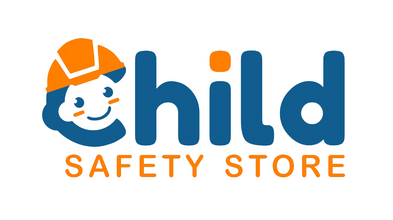
Poison Prevention: Cleaning Supplies and Hand Sanitizer
Poison prevention is a very serious subject. That said, due to concerns about COVID-19, most people keep their cleaning supplies within an arm’s reach these days. Over the past several months, people have been extra cautious by disinfecting surfaces in their homes and using lots of hand sanitizer (if they can find any!). These are great safety precautions. However, it is important to remember that when children come into contact with these products, it can easily spell disaster.
We’ve written a lot about how to stay safe during this pandemic, from the proper way to wash your hands and wear a mask to keeping your kids busy during quarantine. We’ve also explored ways to help prevent poisoning from medicines. Today, let’s dive into some tips for preventing poisonings due to cleaning supplies.
Tips for Poison Prevention in Your Home
As we mentioned above, chemical disinfectants are critical for keeping your home clean. That's more important now than ever before. They can even help you to avoid some illnesses that are contagious. That said, these often caustic substances can pose a significant danger to children.
Don’t Let Your Guard Down
When you have children, it’s easy to get distracted. Preparing for the arrival of guests is a perfect example of a time when parents might not pay full attention to chemical safety while cleaning. It is important to be aware of where your cleaning supplies are located. Your cleaning supplies should always be inaccessible to children, even when in use.
Store Safely Aware
When these items are not in use, they should be stored high enough that your child can’t reach them. Even so, the doors should still have cabinet locks or safety latches on them as well. After all, kids are curious creatures. It is helpful to have multiple layers of protection preventing them from accessing poisonous or harmful substances.
Hand Sanitizer
The American Academy of Pediatrics (AAP) recommends that you treat hand sanitizer as any other poisonous product. Many hand sanitizers contain alcohol in high concentrations. If swallowed, hand sanitizer can very quickly cause alcohol poisoning. Just a few squirts of the liquid can be enough to get a small child drunk. These products aren’t bad to use when soap isn’t available, however it is best to monitor your child’s use of it. A dime-sized amount on dry hands is plenty.
Safe Alternatives
You may choose to use products that are less toxic than your typical store-bought disinfectants. For instance, vinegar is a great way to rid a surface of grease. If you do buy from a store, try organic options as well as sanitizers with a lower concentration of alcohol.
What To Do If Poisoned
The fastest action you can take if you think your child is poisoned is to call 911. Additionally, Poison Control can be reached at 1-800-222-1222. If cleaning fluid gets in your child’s eyes or skin, rinse the affected area with room temperature water for 15 minutes. If the cleaner is swallowed, have them spit out any liquid remaining in their mouths. According to the AAP, you should not try to get the child to vomit. This can accidentally cause more damage. Instead, contact the authorities and ask for help.
